
Traveling to historical sites offers an enriching experience, offering insights into the past and the opportunity to see some of the world’s most treasured landmarks. However, when it comes to visiting historical sites in developing nations, it’s vital to approach travel with sensitivity, respect, and responsibility.
Adopting sustainable and respectful practices not only enhances your travel experience but also contributes to the conservation of cultural heritage and supports the local communities. In this article, we explore how you can travel responsibly to historical sites in developing nations.
Understanding the Impact of Tourism
Tourism can be a double-edged sword. While it provides a significant boost to local economies, it can also lead to environmental degradation and cultural insensitivity. Understanding the impact of tourism is critical for making informed choices about traveling responsibly.
The primary goal is to minimize the negative impacts tourism can have on historical sites and the local communities. This requires a commitment to being a responsible tourist and supporting initiatives that focus on preservation and sustainability.
Research and Respect the Culture
Before visiting a historical site, invest time in understanding the local culture and history. Respecting the traditions, beliefs, and local customs can enhance your travel experience and minimize cultural misunderstandings.
Learning phrases in the local language, dressing appropriately, and observing cultural norms can be a meaningful way to show respect. Avoid behaviors that might be considered disrespectful, and always ask for permission before taking photographs, especially at religious or sacred sites.
Support Local Economies
One of the most impactful ways to contribute to the local communities is to support local businesses. This includes staying at locally-owned accommodations, dining at local restaurants, and purchasing handicrafts directly from artisans. This not only boosts the local economy but ensures that your money is staying within the community.
Additionally, hiring local guides not only enriches your understanding of the site but also provides employment opportunities for locals and ensures that the information you receive is authentic and respectful of local perspectives.
Practice Environmental Sustainability
Many historical sites are at risk due to environmental pressures. As responsible travelers, we should strive to reduce our environmental footprint. Simple acts such as minimizing waste, using public transport, and carrying reusable items like water bottles and shopping bags contribute significantly towards sustainability.
Additionally, respect the physical integrity of the sites by not littering, refraining from touching delicate surfaces, and sticking to designated paths during your visit.
Contribute to Preservation Efforts
Consider contributing to the conservation of historical sites by supporting preservation organizations and initiatives. Many historical sites in developing nations rely on donations for their maintenance and protection.
Participating in volunteer programs dedicated to preservation or donating to projects that focus on the conservation of cultural heritage can make a considerable difference in preserving these sites for future generations.
Engage and Educate
Engagement and education are key components of responsible travel. Share your knowledge and experiences with fellow travelers and encourage them to follow responsible tourism practices.
Educating oneself about the social, cultural, and environmental challenges faced by these sites, and spreading awareness can foster a community of informed travelers who prioritize sustainability and respect.
Conclusion
Traveling to historical sites in developing nations is a privilege that comes with the responsibility of ensuring that these sites remain protected and revered. By adopting responsible travel practices, we can enjoy these cultural treasures while helping preserve their legacy for future generations.
Remember, responsible travel is not just advantageous for the sites and communities; it enriches our understanding and appreciation of the world, creating meaningful travel experiences that resonate long after our journey ends.
Traveling to historical sites offers an enriching experience, offering insights into the past and the opportunity to see some of the world’s most treasured landmarks. Adopting sustainable and respectful practices not only enhances your travel experience but also contributes to the conservation of cultural heritage and supports the local communities. 
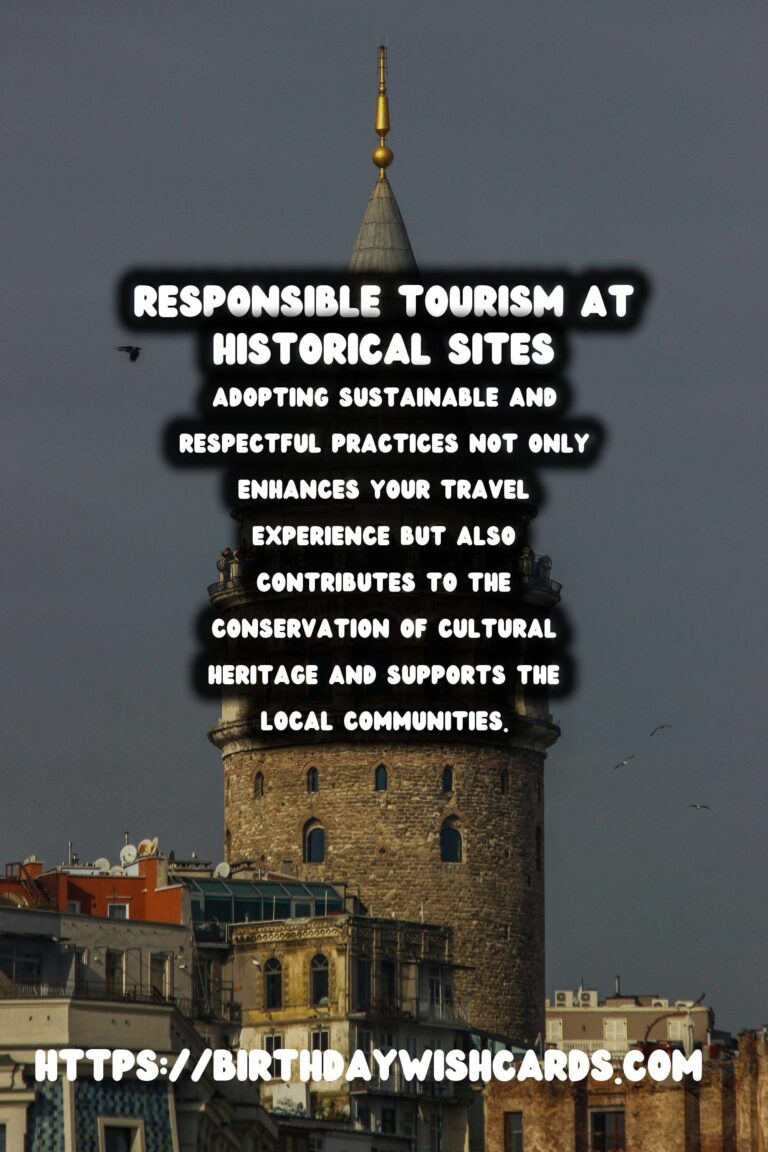
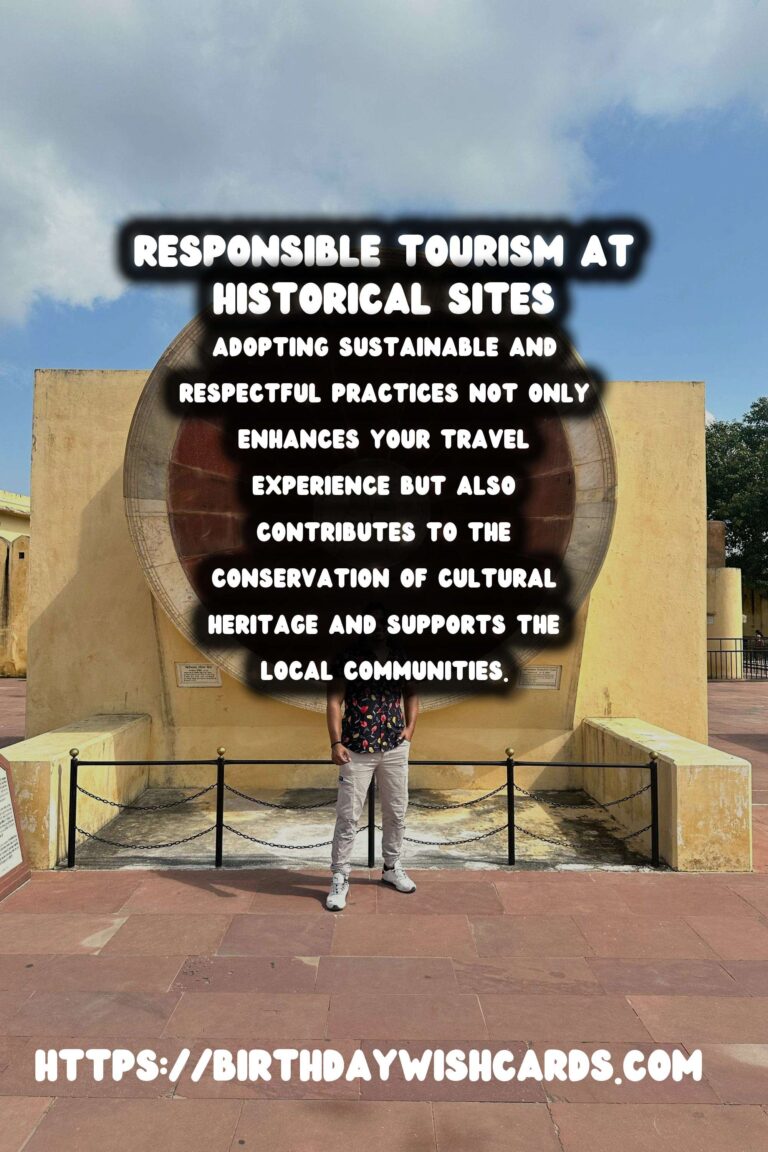
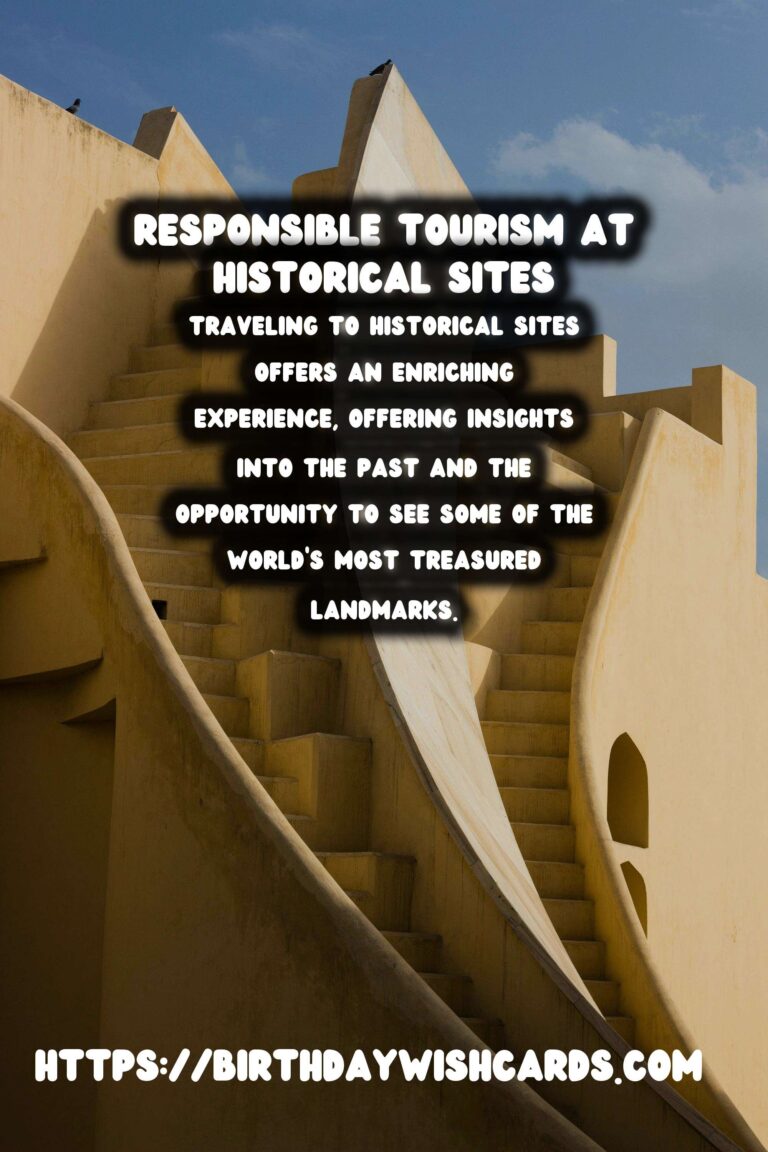
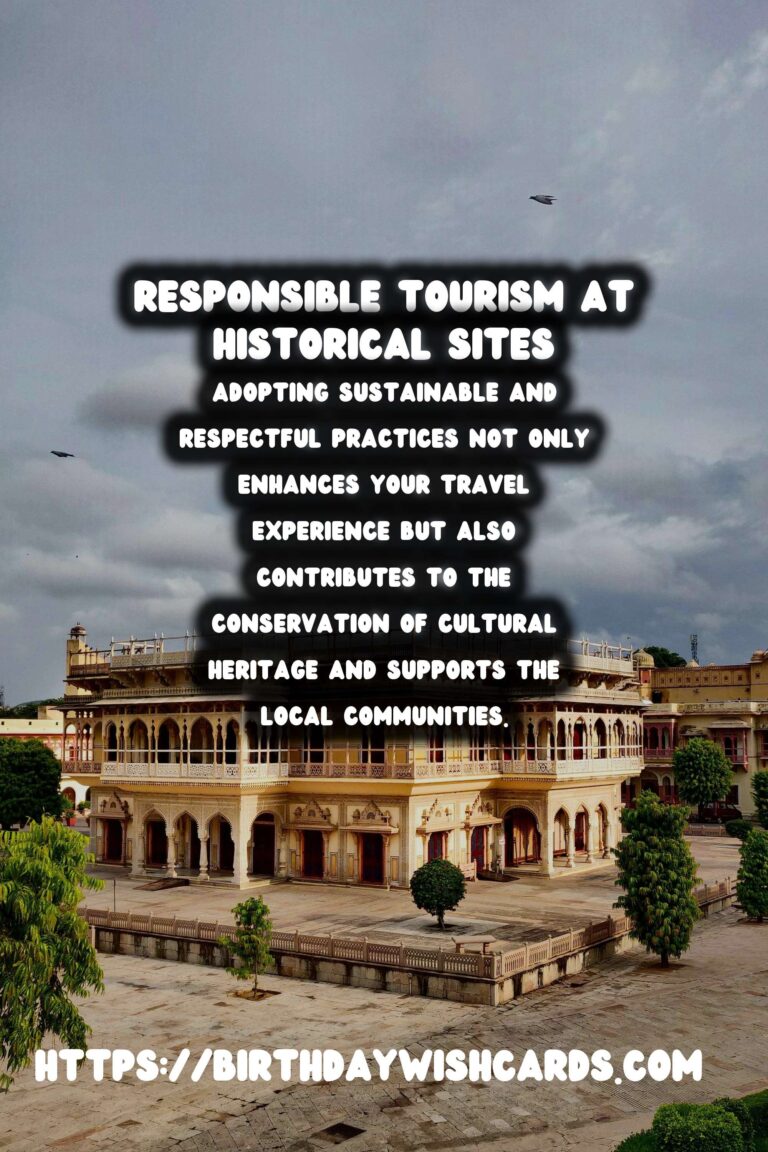
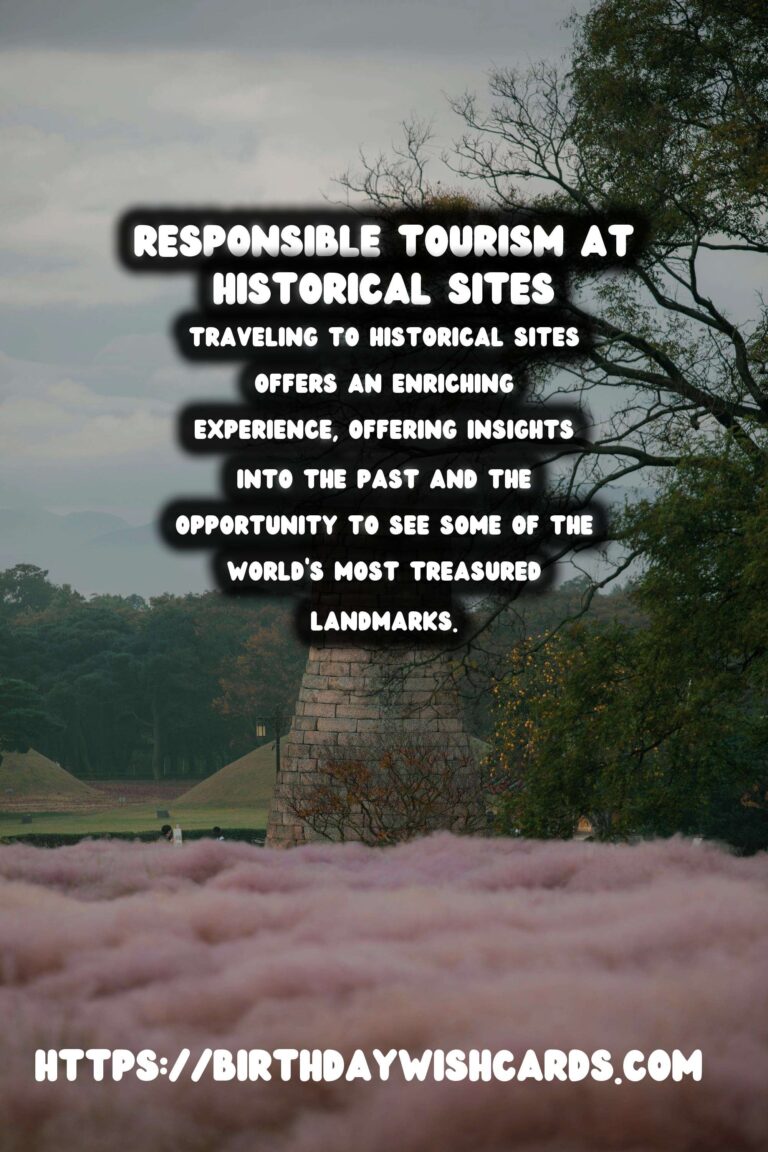
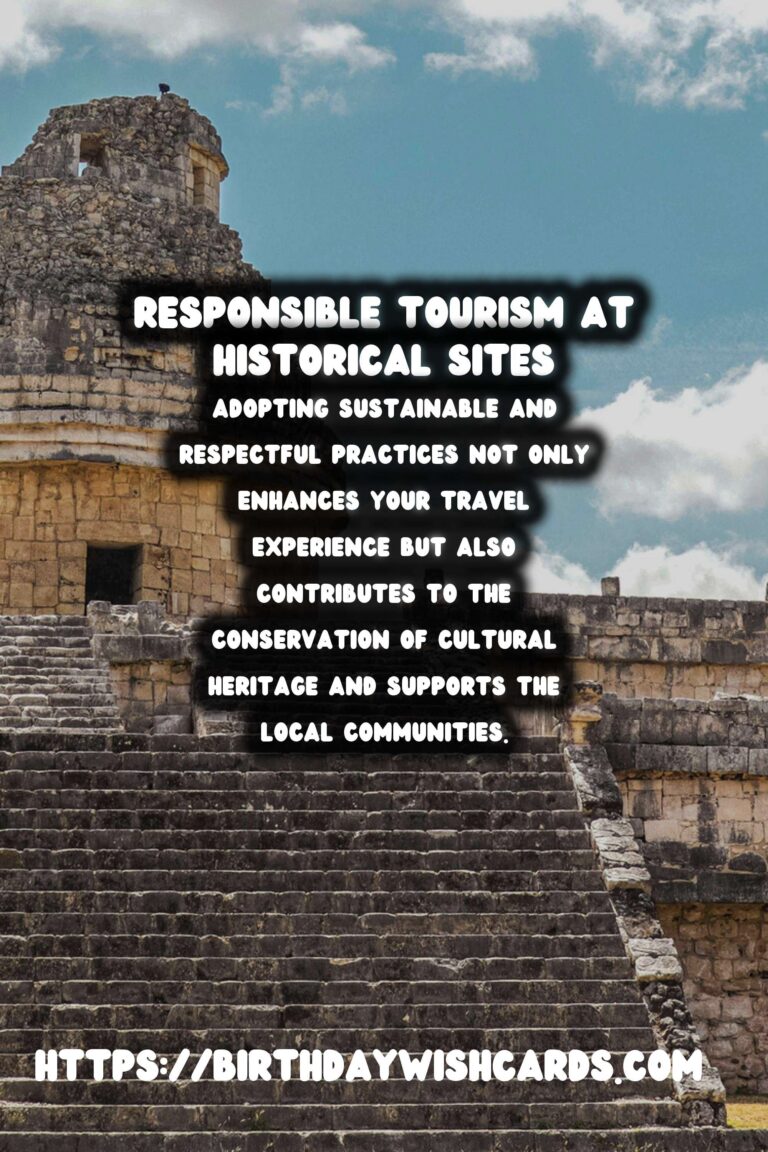
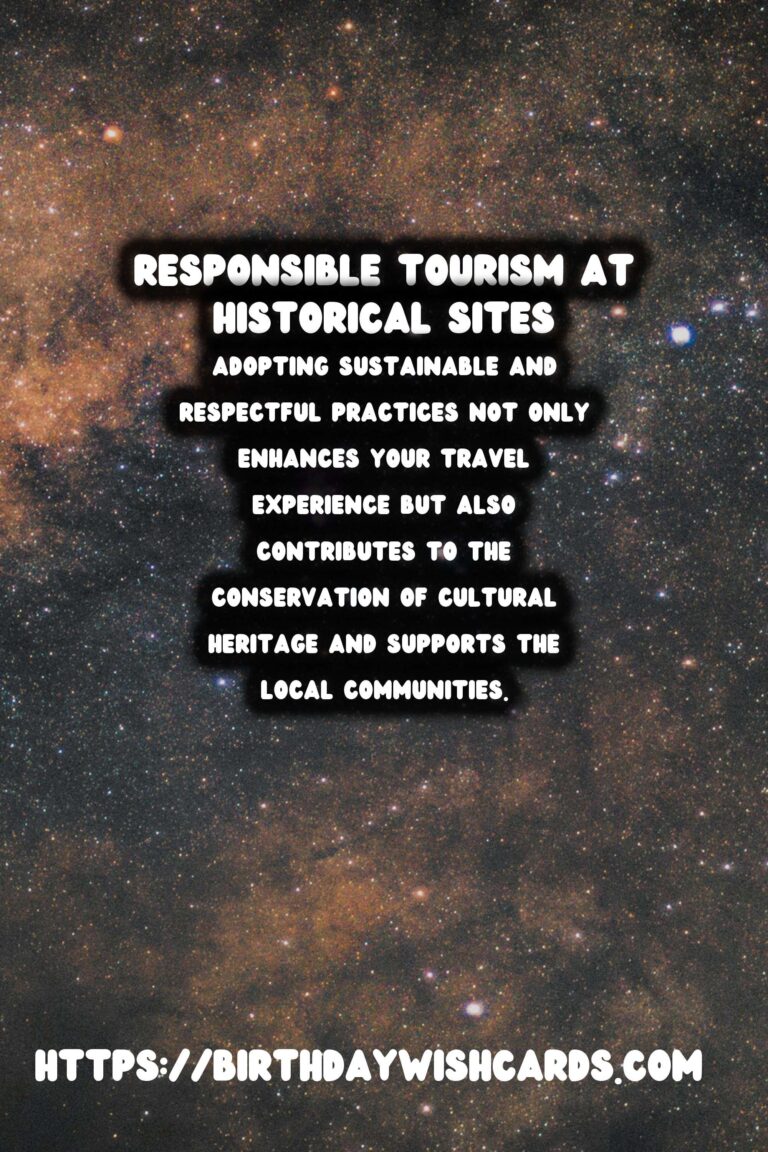
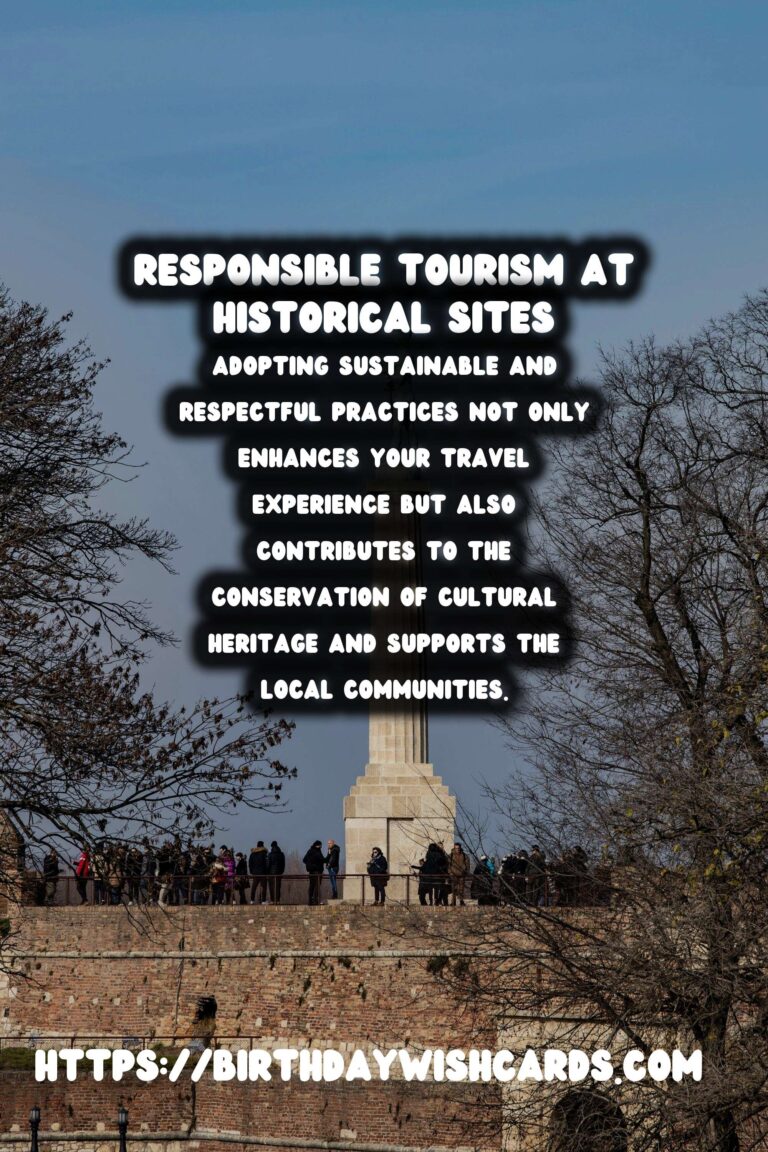

#ResponsibleTravel #HistoricalSites



